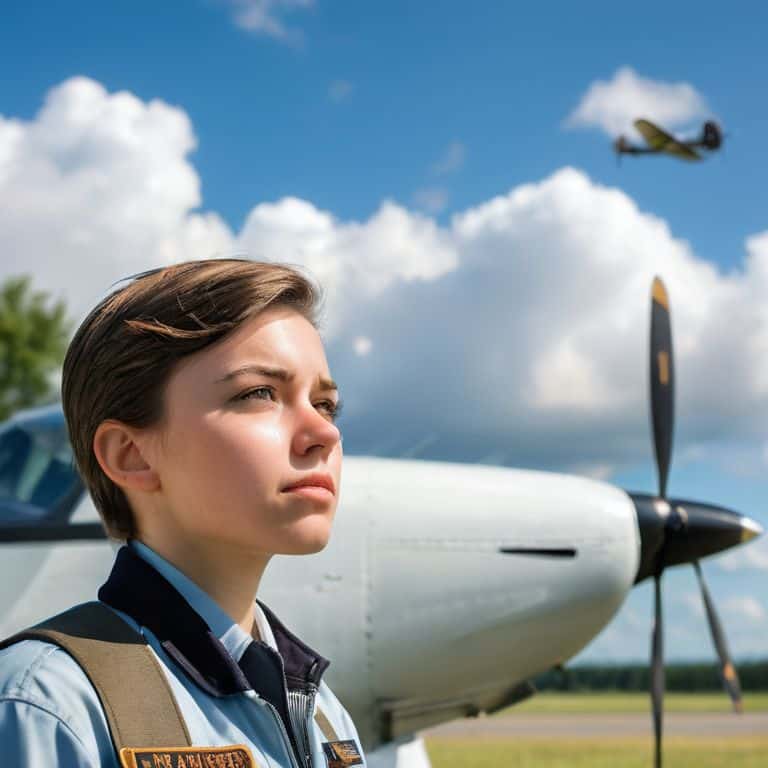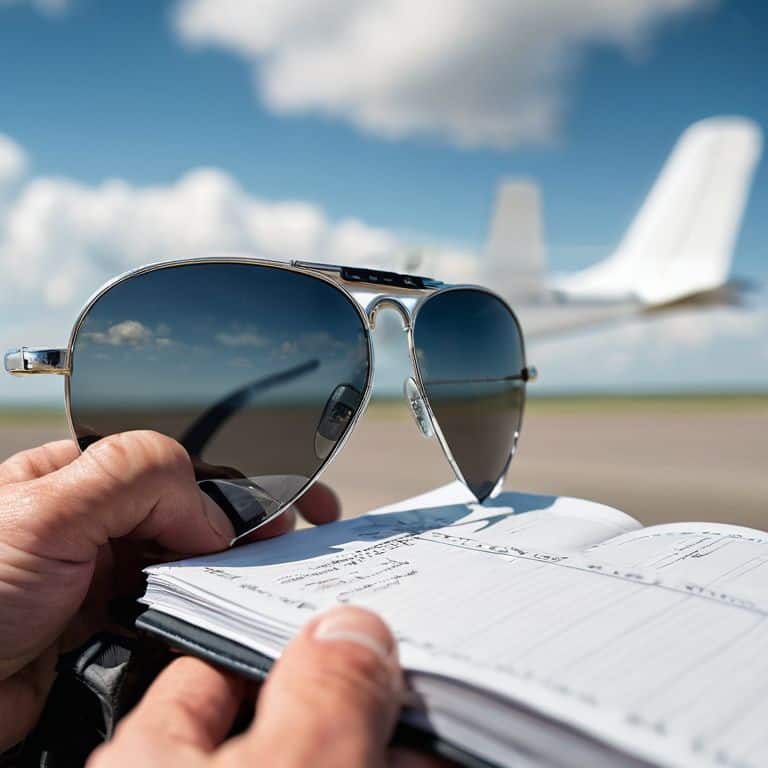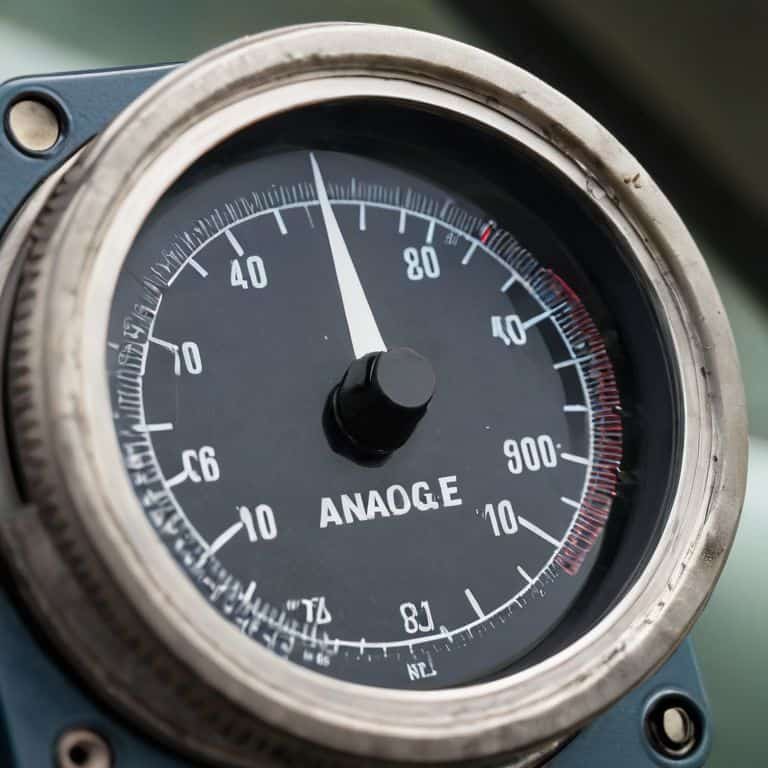I still remember the day I decided to become a pilot, and the overwhelming task of choosing a flight school. Everyone told me it was all about finding the one with the most advanced equipment or the cheapest rates, but I soon discovered that wasn’t the case. In fact, the most important factors in selecting a flight school have little to do with flashy marketing or low prices. As a former bush pilot and now a flight instructor, I’ve seen many students struggle with this decision, and it’s time to set the record straight.
As we dive into the world of aviation, I want to assure you that finding the right fit is crucial for your success. In this article, I’ll share my personal experience and expertise to guide you through the process of choosing a flight school. You can expect practical advice on what to look for, what questions to ask, and how to make an informed decision that suits your needs and goals. By the end of this guide, you’ll be equipped with the knowledge to make a confident choice and start your journey to becoming a pilot. Whether you’re a seasoned enthusiast or just starting out, my aim is to provide you with a clear and straightforward approach to selecting the perfect flight school for you.
Table of Contents
- Guide Overview: What You'll Need
- Step-by-Step Instructions
- Choosing a Flight School
- Navigating the Skies: 5 Essential Tips for Choosing the Right Flight School
- Key Takeaways for Choosing the Right Flight School
- Words of Wisdom
- Conclusion: Taking to the Skies with Confidence
- Frequently Asked Questions
Guide Overview: What You'll Need

Total Time: several weeks to several months
Estimated Cost: $5,000 – $20,000 or more
Difficulty Level: Intermediate / Hard
Tools Required
- Computer (with internet access)
- Phone (for contacting schools)
- Notebook (for taking notes)
Supplies & Materials
- List of local flight schools
- Flight school comparison spreadsheet (optional)
- Pilot license requirements documentation (from aviation authority)
Step-by-Step Instructions
- 1. First, define your goals and what you want to achieve by attending a flight school. Are you looking to become a professional pilot, or do you want to fly for recreational purposes? This will help you narrow down your options and focus on schools that cater to your specific needs.
- 2. Next, research potential schools and make a list of those that interest you. Look for schools that are certified by the Federal Aviation Administration (FAA) and have a good reputation in the aviation community. You can check online reviews, ask for referrals from other pilots, and visit the schools’ websites to get a sense of their curriculum and training programs.
- 3. Now, evaluate the instructors at each school. What are their qualifications and experience? Are they certified flight instructors (CFIs), and do they have a good safety record? You want to learn from instructors who are not only knowledgeable but also passionate about teaching and have a patient, encouraging approach.
- 4. Then, consider the aircraft and equipment used by the school. Are they well-maintained, and do they have the latest technology and safety features? You want to learn on aircraft that are reliable and safe, and that will prepare you for the demands of real-world flying.
- 5. After that, look into the school’s safety record and policies. What are their procedures in case of an emergency, and how do they ensure student safety? You want to attend a school that prioritizes safety and has a strong focus on risk management and emergency procedures.
- 6. Next, review the school’s curriculum and training programs to ensure they align with your goals and needs. Do they offer a structured syllabus that covers all the necessary topics, from aircraft systems to weather and navigation? Are there opportunities for simulator training, and do they offer any specialized courses or certifications?
- 7. Finally, visit the schools in person and get a feel for the atmosphere and community. Talk to current students and instructors, and ask questions about the school’s support services and resources. Do they offer financial aid, academic support, and career counseling? You want to attend a school that will support you every step of the way and help you achieve your aviation goals.
Choosing a Flight School

When considering flight training programs for beginners, it’s essential to look at the curriculum and ensure it covers all the necessary topics for FAA certification requirements. A well-structured program will provide a solid foundation for your future aviation career. As a flight instructor, I’ve seen many students succeed with a clear understanding of the material.
In addition to the curriculum, it’s crucial to research the best flight schools for international students if you’re not from the US. Some schools have more experience with international students and can provide additional support. You should also consider the private pilot license cost and whether the school offers any financial aid or scholarships. This will help you make an informed decision about which school is the best fit for your budget.
As you weigh your options, keep in mind that your flight instructor’s experience and aviation career paths can impact your learning experience. Research the instructors at each school and look for those with a strong track record of producing successful students. You should also consider the school’s flight instructor salary expectations and how that may affect the quality of instruction you receive. By doing your research, you can find a school that meets your needs and sets you up for success in your aviation career.
Faa Certification Unlocking Aviation Career Paths
When exploring flight schools, it’s essential to consider FAA certification. This stamp of approval ensures the school meets rigorous standards, providing a solid foundation for your aviation career. As a former bush pilot, I’ve seen firsthand the impact of quality training on a pilot’s success.
FAA certification unlocks various career paths, from commercial airlines to private charter companies. Look for schools with a strong track record of producing certified pilots. I always advise my students to research a school’s certification rates and instructor experience before making a decision. By choosing an FAA-certified school, you’ll be well on your way to a successful aviation career.
Flight Training for Beginners Where to Start
As a beginner, it’s essential to understand that flight training is a structured process. You’ll start by learning the fundamentals of flight, aircraft systems, and weather. A good flight school will have a clear curriculum and experienced instructors to guide you through each step. When evaluating a school, look for a well-organized training program that covers both theoretical knowledge and practical skills.
I like to think of it like pre-flight preparations – you need to check all the boxes before taking off. In this case, your “pre-flight” checklist should include the school’s reputation, instructor qualifications, and aircraft maintenance records. By doing your research and prioritizing these factors, you’ll be well on your way to finding a flight school that sets you up for success.
Navigating the Skies: 5 Essential Tips for Choosing the Right Flight School

- Research the flight school’s reputation and accreditation to ensure you’re getting a high-quality education
- Consider the type of aircraft and equipment you’ll be training with, as well as the school’s maintenance and safety record
- Look for a school with experienced instructors who have a proven track record of helping students achieve their goals
- Check the school’s curriculum and course structure to ensure it aligns with your career aspirations and learning style
- Visit the school in person to get a feel for the facilities, meet with instructors, and ask questions to determine if it’s the right fit for you
Key Takeaways for Choosing the Right Flight School
Research and understand the different types of flight school certifications, such as FAA certification, to determine which path aligns with your aviation career goals
Consider factors like location, cost, and aircraft fleet when selecting a flight school to ensure it meets your specific needs and budget
Look for a flight school with experienced instructors, a structured curriculum, and a safety-focused approach to ensure you receive high-quality training and achieve your pilot certification
Words of Wisdom
Choosing the right flight school is like plotting a course through unfamiliar skies – it requires patience, research, and a clear understanding of your destination, but with the right guidance, you can navigate the journey with confidence and reach new heights.
Daniel Sato
Conclusion: Taking to the Skies with Confidence
As we conclude our journey through the process of choosing a flight school, it’s essential to reflect on the key considerations we’ve discussed. From understanding the basics of flight training to navigating the world of FAA certification, each step is crucial in laying the foundation for a successful aviation career. Remember, selecting the right flight school is not just about meeting the requirements; it’s about finding an environment that fosters growth and learning. By carefully evaluating factors such as instructor experience, aircraft fleet, and training curriculum, you can make an informed decision that aligns with your goals and aspirations.
As you stand at the threshold of this exciting journey, I encourage you to embrace the spirit of adventure that defines aviation. Becoming a pilot is not just about acquiring a skill; it’s about embracing a lifestyle of discovery and continuous learning. With the right mindset and support, you’ll be well on your way to soaring through the skies, and I am honored to have been a part of your ground school experience. So, take a deep breath, buckle up, and get ready to take your dreams to new heights.
Frequently Asked Questions
What are the most important factors to consider when selecting a flight school?
When selecting a flight school, consider factors like location, cost, and aircraft fleet. But most importantly, look for a school with experienced instructors and a safe, supportive learning environment. Think of it like pre-flight checks – you want to ensure all systems are go before taking off on your aviation journey.
How do I know if a flight school is certified by the Federal Aviation Administration (FAA)?
To verify FAA certification, look for the FAA’s seal of approval on the flight school’s website or marketing materials. You can also check the FAA’s official website, which lists all certified flight schools. Think of it like checking the weather forecast before a flight – you want to ensure you’re flying with a reputable and safe partner.
What kind of training environment and equipment should I expect from a reputable flight school?
When evaluating a flight school, look for modern aircraft, well-maintained facilities, and up-to-date simulation equipment. A reputable school should also have a structured curriculum, experienced instructors, and a safety-first mentality. Think of it like pre-flight checks – you want to ensure everything is in order before taking to the skies.



